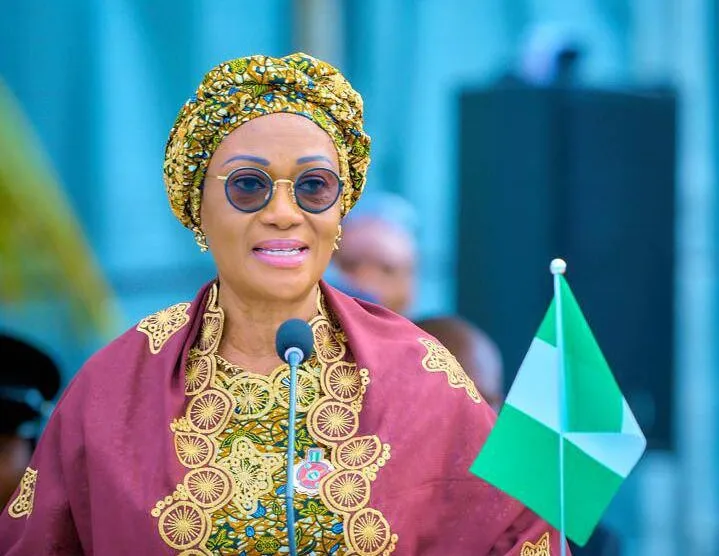Nigeria’s First Lady, Senator Oluremi Tinubu, has officially declared Female Genital Mutilation (FGM) a violation of human rights and committed the administration of her husband, President Bola Tinubu, to eliminating the practice. The First Lady emphasized the dire need for collective action to protect Nigerian girls, highlighting that about 34 million Nigerian women and girls are at risk of FGM by 2030 if the practice is not eradicated.
In a statement to mark the International Day of Zero Tolerance for Female Genital Mutilation on February 6, Oluremi Tinubu cited the UNFPA’s report, revealing that Nigeria holds the highest number of FGM cases globally. Over 20 million Nigerian women and girls have undergone FGM, and another 14 million girls are at risk of experiencing the harmful practice by 2030.
The First Lady reaffirmed her support for the ongoing efforts to eliminate FGM, commending the collaborative actions between the Nigerian government, UNFPA/UNICEF Joint Programme, civil society, traditional institutions, and community leaders. She stressed that, despite the progress made, more work is needed to eradicate FGM completely.
“Female genital mutilation is a human rights violation, with no health benefits,” Oluremi Tinubu declared. “This harmful practice affects not only women but also the entire society, undermining the values of respect and dignity. It is our collective responsibility to put an end to FGM and protect our girls.”
Oluremi Tinubu urged both local and international partners to intensify their efforts to eliminate FGM, stating that the current administration is fully committed to ending the practice. She emphasized that violence against women, including FGM, is not just a women’s issue but a global human rights issue, affecting all of humanity.
Government Reaffirms Commitment to Eradicate FGM
The Minister of Women Affairs, Imaan Sulaiman-Ibrahim, also reiterated the Nigerian government’s dedication to eradicating FGM. She described FGM as a public health crisis and a significant barrier to achieving key Sustainable Development Goals (SDGs). The Minister emphasized the need for strong, multi-sectoral strategies, including legal reforms, community interventions, and educational campaigns, to address this issue.
“We must continue to fight for the rights of every Nigerian girl,” Sulaiman-Ibrahim said. “FGM is not culture; it is a human rights violation, and we must work together to end it.”
Strengthening Alliances to End FGM
On this year’s International Day of Zero Tolerance for FGM, the theme “Stepping Up the Pace: Strengthening Alliances and Building Movements to End FGM” was highlighted, focusing on the need for stronger partnerships to combat FGM. The National Human Rights Commission (NHRC) also called for enhanced collaborations to address this issue, with Executive Secretary Dr. Tony Ojukwu urging citizens and healthcare workers to work together to eliminate FGM across Nigeria.
Dr. Ojukwu underscored the importance of continuous education, public awareness, and legal action to eliminate the practice. He revealed that the NHRC, in partnership with UNFPA and Civil Resource Development and Documentation Centre (CIRDDOC), had created a training manual to help report and prevent FGM cases, with plans to extend the manual’s use to other states.
Calls for Action from All Sectors
The NHRC’s Dr. Ojukwu also called for action on cases of FGM, encouraging Nigerians to report violations to the Commission using the toll-free number 6472. The commission has been at the forefront of efforts to eliminate FGM, including the establishment of the Special Independent Investigation Panel on Sexual and Gender-Based Violence, which has helped victims by providing skills training and economic support.
First Lady Oluremi Tinubu’s unwavering commitment to ending FGM, alongside the support from the Nigerian government and key human rights organizations, marks a critical step forward in the fight against this harmful practice. The collective commitment from all sectors, including government, civil society, and community leaders, is crucial in ensuring a future free from FGM for Nigerian girls.
Let us unite to #EndFGM and ensure that every girl in Nigeria has the freedom to live, dream, and thrive.
